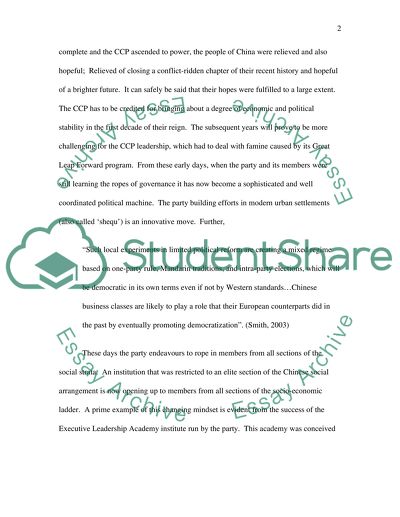Cite this document
(“The current leadership and memebership composition of the Chinese Essay”, n.d.)
Retrieved from https://studentshare.org/miscellaneous/1547313-the-current-leadership-and-memebership-composition-of-the-chinese-communist-party-reflects-the-evolution-of-the-chinese-state-and-society-since-1949-comment
Retrieved from https://studentshare.org/miscellaneous/1547313-the-current-leadership-and-memebership-composition-of-the-chinese-communist-party-reflects-the-evolution-of-the-chinese-state-and-society-since-1949-comment
(The Current Leadership and Memebership Composition of the Chinese Essay)
https://studentshare.org/miscellaneous/1547313-the-current-leadership-and-memebership-composition-of-the-chinese-communist-party-reflects-the-evolution-of-the-chinese-state-and-society-since-1949-comment.
https://studentshare.org/miscellaneous/1547313-the-current-leadership-and-memebership-composition-of-the-chinese-communist-party-reflects-the-evolution-of-the-chinese-state-and-society-since-1949-comment.
“The Current Leadership and Memebership Composition of the Chinese Essay”, n.d. https://studentshare.org/miscellaneous/1547313-the-current-leadership-and-memebership-composition-of-the-chinese-communist-party-reflects-the-evolution-of-the-chinese-state-and-society-since-1949-comment.


